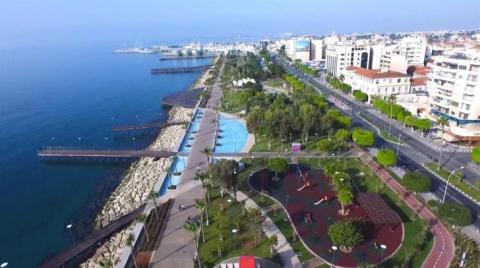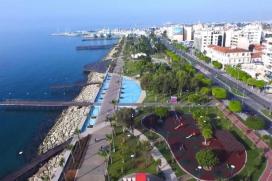Limassol's Ambitious Journey Towards Becoming a Climate-Neutral, Smart City by 2030.
Smart City Initiatives: Limassol's journey to becoming a smart city involves various initiatives aimed at improving the quality of life for its residents while reducing its carbon footprint. These initiatives include:
Sustainable Mobility: Limassol is actively promoting sustainable transportation solutions such as electric buses, cycling lanes, and pedestrian-friendly areas. Investments in public transport infrastructure are expected to reduce traffic congestion and emissions.
Renewable Energy: The city is investing in renewable energy sources, including solar panels on public buildings and wind turbines in strategic locations. This move aims to reduce the city's reliance on fossil fuels and promote cleaner energy generation.
Waste Management: Limassol is implementing advanced waste management systems, including recycling programs and waste-to-energy technologies. These efforts will minimize landfill waste and contribute to a circular economy.
Green Spaces: The city is committed to expanding green spaces and parks, enhancing air quality, and providing residents with recreational areas. These green lungs are essential for a healthier urban environment.
Digital Infrastructure: Limassol is improving its digital infrastructure to enhance connectivity and data-driven decision-making. Smart sensors, IoT devices, and a robust broadband network will support various smart city applications.
Climate-Neutral Commitment: Limassol's determination to achieve climate neutrality is underlined by its efforts to reduce greenhouse gas emissions. These initiatives align with international climate goals, including the Paris Agreement. By 2030, the city aims to achieve a balance between emissions produced and emissions removed from the atmosphere.
References to Achieve Climate Neutrality:
Implementation of carbon pricing mechanisms.
Promotion of energy-efficient building designs and retrofits.
Reforestation projects and urban greening efforts.
Encouragement of sustainable consumption and lifestyles among citizens.
Collaboration with local businesses to reduce emissions in the commercial sector.
Challenges and Collaborations: Limassol acknowledges that achieving its climate-neutral, smart city vision will come with challenges. These include financing, public awareness, and political commitment. To address these challenges, the city is collaborating with national and international partners, including the European Union, to access funding and expertise.
Conclusion: Limassol's commitment to becoming a climate-neutral, smart city by 2030 is a testament to its dedication to creating a sustainable and prosperous future for its residents. Through innovation, sustainable practices, and international collaboration, Limassol is poised to lead the way in redefining urban living in the 21st century. As the city continues to progress, its journey will undoubtedly inspire others to follow suit in the pursuit of a greener, smarter, and more sustainable world.








There are no comments yet
Leave a Comment